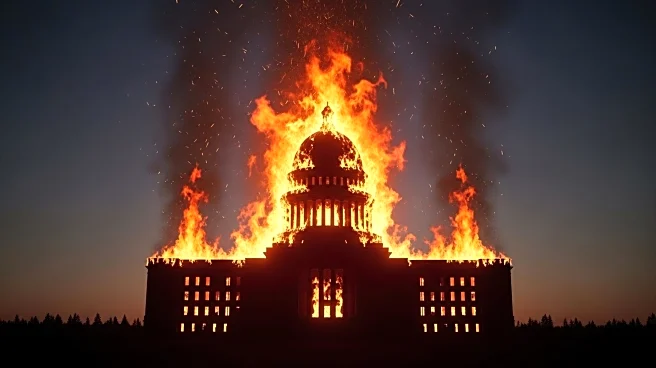What's Happening?
In Indonesia, three individuals have died and five others were injured after protesters set fire to a regional parliament building in Makassar, South Sulawesi province. The incident occurred amid escalating demonstrations that began in Jakarta over lawmakers' pay and intensified following the death of a ride-hailing motorbike driver hit by a police armored vehicle. President Prabowo Subianto, who assumed office in October last year, visited the driver's family, offering condolences and promising an investigation. The protests have led to isolated looting and damage to transportation facilities in Jakarta, with disruptions to public transit services. The situation poses a significant challenge to President Subianto's administration.
Why It's Important?
The protests in Indonesia highlight growing public dissatisfaction with government policies and actions, particularly concerning economic issues and law enforcement practices. The unrest could have implications for Indonesia's political stability and economic outlook, potentially affecting foreign investment and tourism. The government's response to the protests will be crucial in determining its ability to maintain order and address public grievances. The situation also underscores the challenges faced by President Subianto in navigating domestic issues while maintaining international relations.
What's Next?
The Indonesian government is likely to face increased pressure to address the root causes of the protests, including economic disparities and perceived injustices in law enforcement. President Subianto's administration may need to implement policy changes or reforms to appease public sentiment and prevent further unrest. The investigation into the motorbike driver's death will be closely watched, and its outcome could influence public perception of the government's commitment to justice and accountability.










